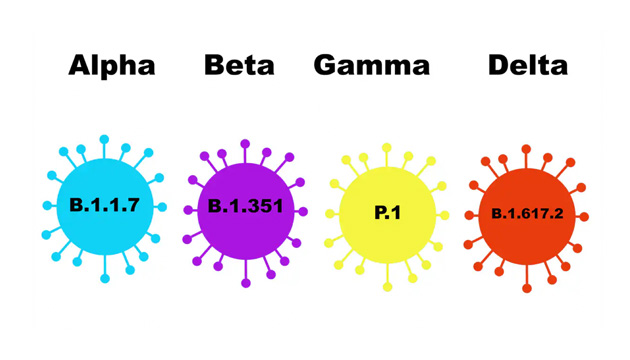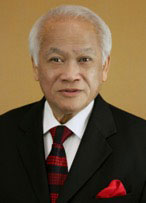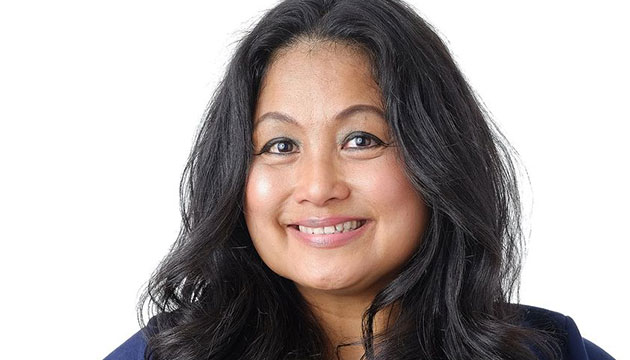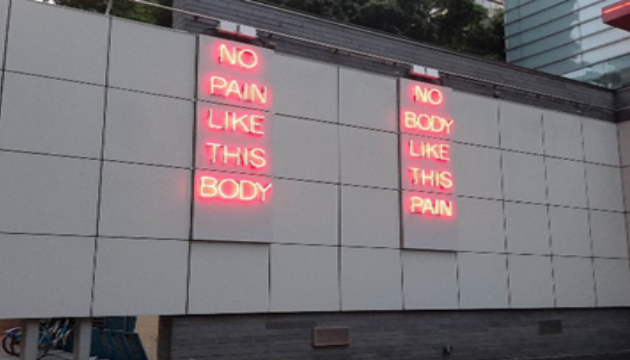(This is Part 32 of Dr. Pagtakhan’s column, Medisina at Politika, in Pilipino Express.)
Editor’s Note: In February 2020, CFNet started publishing Dr. Rey Pagtakhan’s column, Medisina at Politika, on COVID-19. Now on Part 32 of his running commentary, Dr. Pagtakhan’s twice monthly column has kept the Filipino community and other CFNet readers continually informed about 1) the pandemic and its impact, 2) the scientific advances on drugs and vaccines, and 3) the effectiveness of public health responses, including mass vaccination as a vital step to individual protection and development of population or herd immunity.]
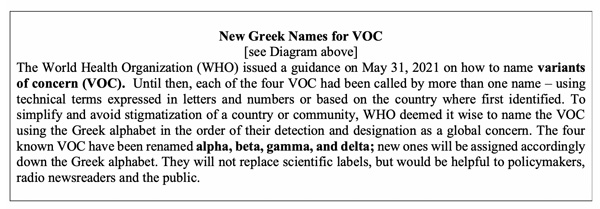
Winnipeg: Thankfully, my family and I are fully vaccinated. That is, we had received more than two weeks ago the two-dose regimen of the Pfizer-BioNTech vaccine. We now have the best self-defence tool against COVID-19 and its Delta variants which, increasingly, are becoming the dominant strain worldwide.
De facto, we have joined the vaccine movement that is building our nation’s herd immunity, also called population immunity – the point where the virus can no longer infect people because enough of the population are fully immunized against it.
As contributors to herd immunity, we keep safe and protected from the virus 1) children younger than 12 years for whom no vaccine is yet approved; 2) vulnerable groups who cannot get vaccinated because of severe allergic reactions; and 3) immunosuppressed and immunocompromised patients as a result of therapy for other medical conditions. In addition, we are helping control and possibly end the pandemic and return living and livelihood to normalcy.
Indeed, I am grateful to vaccine science and I feel good doing my share of civic obligation.
The Human Toll (Johns Hopkins University and CBC & CTV News Coronavirus Trackers, July 13, 2021)
Globally, COVID-19 has sickened over 187 million people (187,708,346) and claimed the lives of over four million (4,046,949) – a thousand-fold increase in a fatality since the WHO officially declared the COVID-19 pandemic on March 12, 2020. Deaths then were a little over 4,000.
Canada’s cumulative toll is 26,414 deaths and close to 1.5 million cases diagnosed (1,428,631).
New Cases, Deaths, Hospitalizations
The preceding week has been good news for Canada. Deaths decreased by 36 per cent (0.2 per 100,000 people); and hospitalizations and ICU beds utilization declined by16 and 10 per cent, respectively. There was only a 1.0 per cent increase in new cases (8.9 cases per 100,000 people).
Notwithstanding the progress. we must be cautious. News of surges of cases due to the Delta variants had been reported from the U.S. They account for more half of their infections and doubling fast. Recently, Canada’s Chief Public Health Dr. Tam said that increased vaccine uptake among younger adults is key to help avoid a resurgence. She expressed concern that adults under 40 have yet to reach the 75 per cent mark with the first dose of vaccine.
Status of Vaccination
Overall, 78.59% - more than three-fourths of the population – have received at least one dose.
A little over half (51.18%) of the eligible population have been fully vaccinated. The coverage almost doubled from the figures a month ago. Five provinces and three territories have their populations fully vaccinated above the national average; the other five provinces have theirs below.
The Unvaccinated Group
Recent news report from Ontario showed the following: 1) that 99.3 per cent of the over 11,000 cases aged 12 to 17 in the past three months had not been vaccinated; and 2) that 96 % of the over 45,970 positives for COVID-19 in 19-to-29-year age group were unvaccinated. These findings support the teaching that vaccines work. And they remain effective against the four variants of concern.
The Delta Variants and the Unvaccinated
“Unvaccinated people are potential variant factories,” said Dr. William Schaffner, a professor in the Division of Infectious Diseases at Vanderbilt University Medical Center (Maggie Fox, CNN. July 3, 2021). “The more unvaccinated people there are, the more opportunities for the virus to multiply.”
Warned Dr. Anthony Fauci, director of the National Institute of Allergy and Infectious Diseases: “the Delta variant is currently the greatest threat in the U.S. to our attempt to eliminate COVID-19” (Robert Stein in CBC News, June 22, 2021).
Said Dr. Jason Kindrachuk (Canada Research Chair in emerging viruses) and Dr. Souradet Shaw (Canada Research Chair in Program Science and Global Public Health,) both at the University of Manitoba in UM Today Newsmagazine): “One of the defining features of the Delta variant has been enhanced transmissibility with increases estimated at 40-60 per cent above the Alpha variant.” They continued: the risk of hospitalization doubled following infection with Delta (compared to Alpha).
Others have labelled the Delta as “a heat-seeking missile' targeting the unvaccinated.”
Manitoba medical experts are worried the Delta could “affect Manitoba students’ return to classrooms this fall (Michelle Gerwing. CTV News. June 18, 2021).” They estimate there will be more than 211,000 unvaccinated kids under 12 in Manitoba and thousands more 12 and up who might only have one dose.”
WHO has projected the Delta variants would become the dominant strain worldwide?
Duty of Care to Ourselves and to Others – a Summation
Every resident/citizen has a duty of care to oneself and to others just as governments have a duty of care to their citizens. That is how public health emerged as a discipline of health science.
One best tools of public health is vaccination. It is the scientific consensus that Delta variants, if unchecked, pose the greatest threat to controlling the pandemic.
Fortunately, the four vaccines approved for use in Canada remain effective against these variants. They protect the individuals against COVID-19 – against preventable illness, hospitalization, mechanical breathing and death. Although partial vaccination is still effective, the effectiveness is not as robust as with full vaccination.
Indeed, it is the consensus among the experts that the best approach controlling and possibly ending the pandemic is via full vaccination.
Let me share these thoughts. I read about a recent COVID-19 patient who had to undergo a double lung transplant to survive. I have read reports of patients who have continued to have clinical problems long after recovery from the acute phase of the disease – the so-called long haulers. Of a young man whose one leg had to be amputated. Of an elderly woman in a long-term care home who, prior to death, could not be with her daughter – painful to both of them. And this most startling news report of patients recently hospitalized – some of whom had to be transferred to the ICU for mechanical ventilators: all these patients had not been vaccinated. All these cases are preventable human sufferings – if only they had agreed and taken the time to be vaccinated. They had done harm to themselves.
Equally and, perhaps even more important, the unvaccinated are a danger not only to selves but also to others: the younger children in our family and beyond for whom no vaccine is yet available; the grandparents, relatives, and neighbours who are more vulnerable due to underlying medical conditions and disabilities; and the immunosuppressed because they receiving chemotherapy for cancer or have had bone marrow and other organ transplants.
This brings me to news reports of health care workers in hospital settings – particularly doctors and nurses – who apparently have not been vaccinated and yet working with patients. Whether they have forgotten to have their vaccines on time or have refused outright is no excuse. As your colleague in practice before I retired, I know we would like to be certain that all medications, vaccines included, have been thoroughly assessed for safety and efficacy. Not infrequently, we review ourselves the original studies and clinical trials. I had done that on the vaccines approved for emergency use. Indeed, the efficacy and safety shown during clinical trials have been validated during the ongoing mass vaccination programs. Let us not simply say, “I just don’t care.”
That is not who we are as healers to our patients. Remember the dictum and the oath: First do no harm. Our patients – who have placed their full trust in us – almost all of them if not all, must have assumed all health care workers have been fully vaccinated.
I am sure no one would like to be the cause of a child’s or someone’s disease or death or to have contributed to it. Thus, it behooves the partially vaccinated and the unvaccinated to complete their series of immunization at the first opportunity. The remaining few anti-vaxxers are asked to do their duty of care to themselves and to others.
Or, shall I remind the vaccine-hesitant and the anti-vaxxers that the medical catastrophes from COVID-19 – sickness, prolonged illness, and death – are real. Those vaccines are effective in preventing them and are safe to use. That we belong to one human family. That we have a duty of care to ourselves and to others.
Or, shall we require full vaccination to be “at the heart of our public health agenda?”


